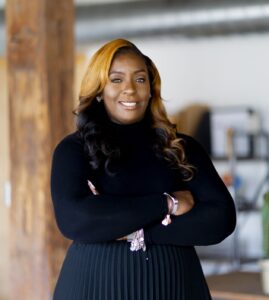For all the truth we’ve uncovered about the aftermath of the 2020 election and the insurrection of Jan. 6, 2021, one question remains unanswered: How was American democracy saved? Were our institutions strong enough to withstand the greatest assault they’ve seen since the Civil War? Or were we saved by a few brave Americans who happened to be in the right place to keep those institutions standing?
Philadelphia, which was the epicenter for a few crucial days, got lucky. We counted every ballot without direct violence or interference. But as the threats leveled at our elected officials remind us, luck doesn’t always last.
That’s why one of the most important things every city can do to protect our country is create the position of chief democracy officer—and Philadelphia, which is about to elect its 100th mayor, can once again lead the way.
In Philly, elected City Commissioners oversee the increasingly complex task of election administration. Still, no single official under the mayor is responsible for leveraging the resources of the executive branch to tackle barriers to voting, maximize turnout, and ensure that democracy is equally applied to all.
Just as challenges to our democracy won’t end with the 2020 election, they didn’t start there, either. Representation at all levels of government starts with counting who lives where, and the COVID-19 pandemic presented unparalleled obstacles to completing our constitutionally mandated decennial Census. Couple that with a presidential administration that sought to systematically undercount immigrant communities by including a citizenship question on the Census and then misled Congress about why it wanted to include that question, and it’s easy to see the need for an official who is responsible for making sure every vote is counted.
But getting counted is only the first step. Like many cities, Philadelphia has historically relied on political parties to engage voters. As a result, Philadelphia’s share of the overall vote in Pennsylvania has “plummeted” for three federal elections in a row.
A chief democracy officer would be tasked with leading a nonpartisan, citywide voter engagement initiative along with city officials and community leaders. But in addition to that outreach, such an official can also identify and utilize touchpoints between City Hall and city residents to create opportunities for updating voter registrations, a constant challenge in cities with a large and transient population.
A chief democracy officer would also lead any city’s fight to remove barriers to voting – particularly those that pose threats to minority voters. Just last year, Pennsylvania’s Republican gubernatorial nominee sponsored legislation that would have allowed registered voters from anywhere in the commonwealth to be poll watchers in counties other than their own. This naked attempt at voter intimidation has a long history in America, where for centuries, similar laws have been used to systematically disenfranchise Black and brown voters. Especially in a majority-minority city like Philadelphia, these unlawful and discriminatory efforts must be fought at the highest levels of our government. In the hands of a chief democracy officer, every vote remains sacrosanct.
Finally, given the misinformation that has exploded into our electoral politics, every city should have an office dedicated to providing nonpartisan voter education. Many partners are willing and able to help, including, in Philadelphia, the City Commissioners and nonprofits like the Committee of Seventy. But it would be the daily job of a chief democracy officer to work with officials on critical and resource-intensive election operations and ensure voters have the information they need to make educated decisions.
Creating a chief democracy officer will do more than just put one more person in the right place. It will strengthen our democratic institutions themselves. It’s time to show the rest of the country that in the place where American democracy was founded, our democracy can again become more perfect.
___________________________________________________________________________________________________________________

Ashley Session
Ashley Session is senior director of external affairs and strategic initiatives for the Committee of Seventy. This nonpartisan nonprofit organization has promoted, supported, and facilitated government ethics and election integrity for over a century.






